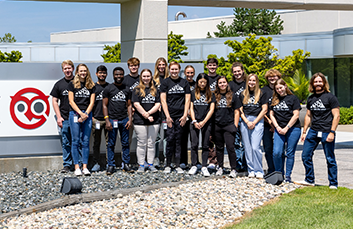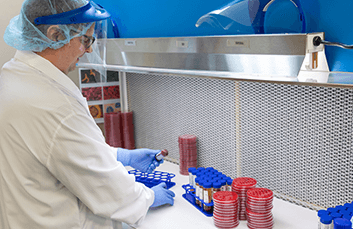Recently, the American Association for Cancer Research (AACR) released its annual Cancer Progress Report. Written for Congress, this report details advances made though government-funded cancer research. Notable subjects included trends in cancer mortality rates, new therapies and ways in which federal funding have supported cancer research.
One of the most important findings described in this report is that between 1991 and 2020, the age-adjusted overall cancer death rate in the United States fell by 33%. In other words, approximately 3.8 million cancer deaths have been averted in the last 30 years. Among these averted deaths are those from breast cancer, which has caused an estimated 460,000 fewer deaths over the last three decades (a 4.3% decline). Lung cancer mortality also dropped, with an almost 5% per year decrease from 2014-2019. Further, childhood and adolescent cancer mortality rates have substantially declined since 1970 – a 70% decrease in overall cancer death rate for patients 14 years and younger and a 64% decrease for patients 15-19.

These lower mortality rates are in part due to new immunotherapies, including immune checkpoint inhibitors and CAR-T cell therapies. Since 2011, the U.S. Food and Drug Administration (FDA) has approved 11 checkpoint inhibitors with indications for at least 20 different cancer types and six CAR-T cell therapies.
The report reminds Congress that most of these therapeutic advances are a direct result of federal investments in the National Institutes of Health (NIH), National Cancer Institute (NCI), FDA and Centers for Disease Control and Prevention (CDC). In the last decade, 354 out of 356 drugs that have been approved for use in the U.S. have been developed through NIH-funded research. In a press release, AACR President, Philip D. Greenberg, MD, FAACR, noted that research is “the engine that’s driving innovation.”
But these therapies are not perfect. Immunotherapies are only applicable to a small fraction of patients, and they can be difficult to manage – patients can develop resistance to treatment or can experience adverse effects to the treatment.
As such, the Cancer Progress Report called upon Congress to show its support for cancer research through the following actions:
- Support increases of at least $3.465 billion to NIH and $2.6 billion to NCI
- Contribute $1.7 billion for Cancer Moonshot activities in fiscal year 2024 across the NCI, FDA and CDC
- Allocate a minimum of $472.4 million during fiscal year 2024 for the CDC Division of Cancer Prevention to support comprehensive cancer control, central cancer registries and screening and awareness programs for specific cancers
- Devote $50 million in funding for FDA’s Oncology Center of Excellence in fiscal 2024 to allow regulators with the necessary staff and tools to conduct expedited review of cancer-related medical products
Efforts to improve outcomes for all cancer patients depend on research. And research requires funding. Greenberg writes, “We are in an era of unparalleled opportunity to make even more breakthroughs for patients. For the cancer research community to achieve these breakthroughs, however, our representatives in Congress must continue to prioritize funding for biomedical research – from basic research to clinical trials.”
Read the report and press release here:


Need for medical lab scientists soars

